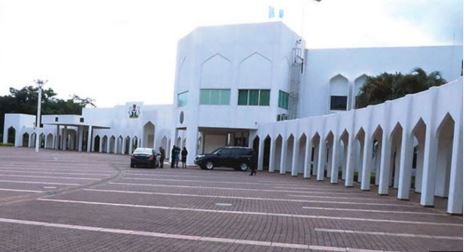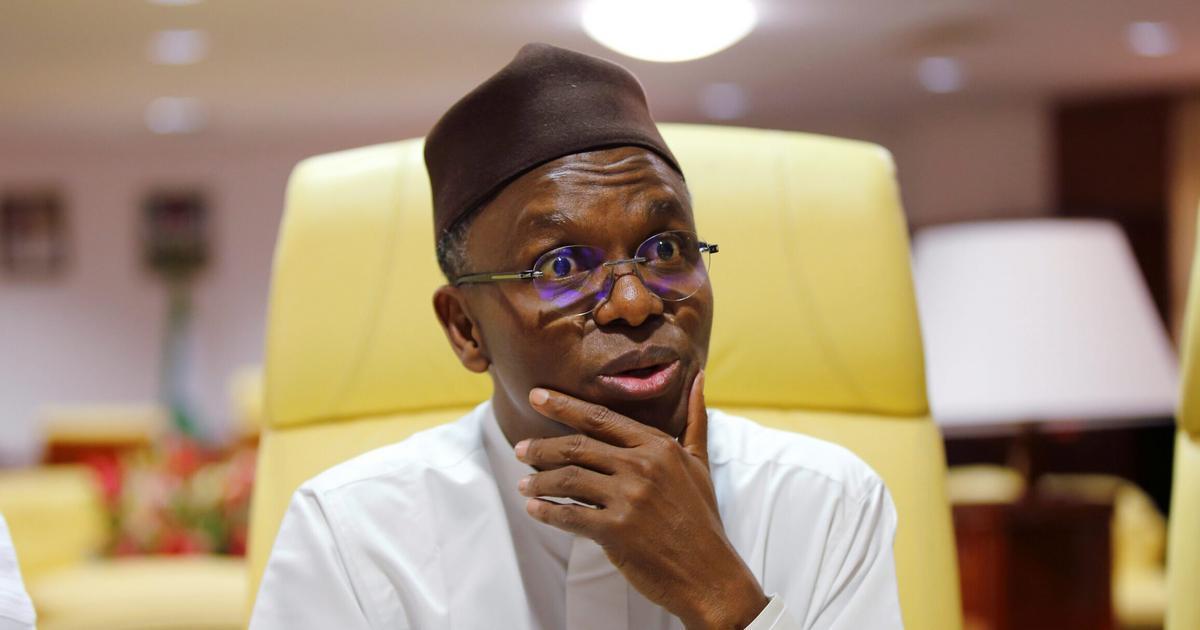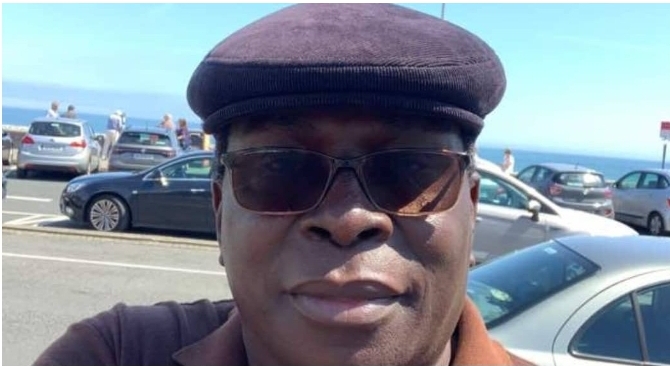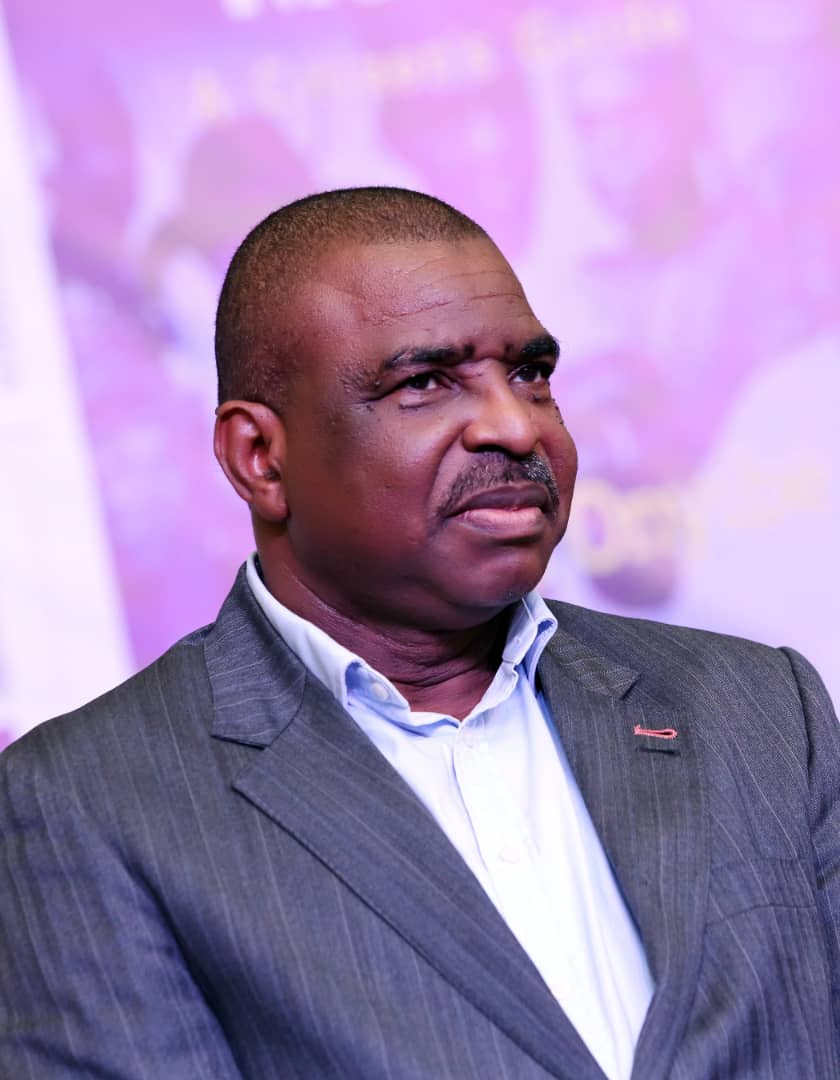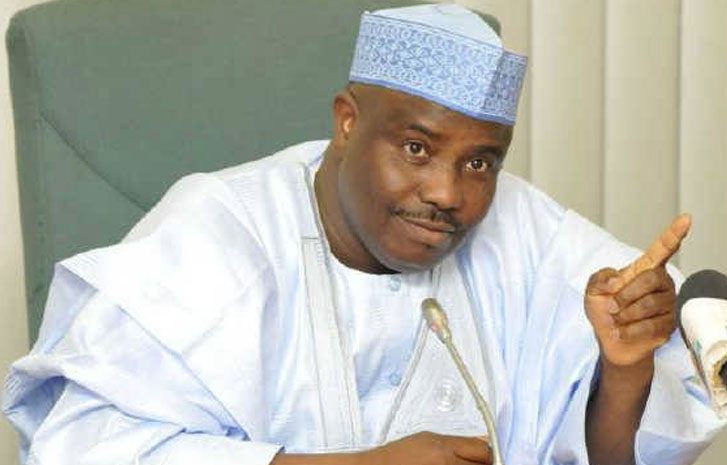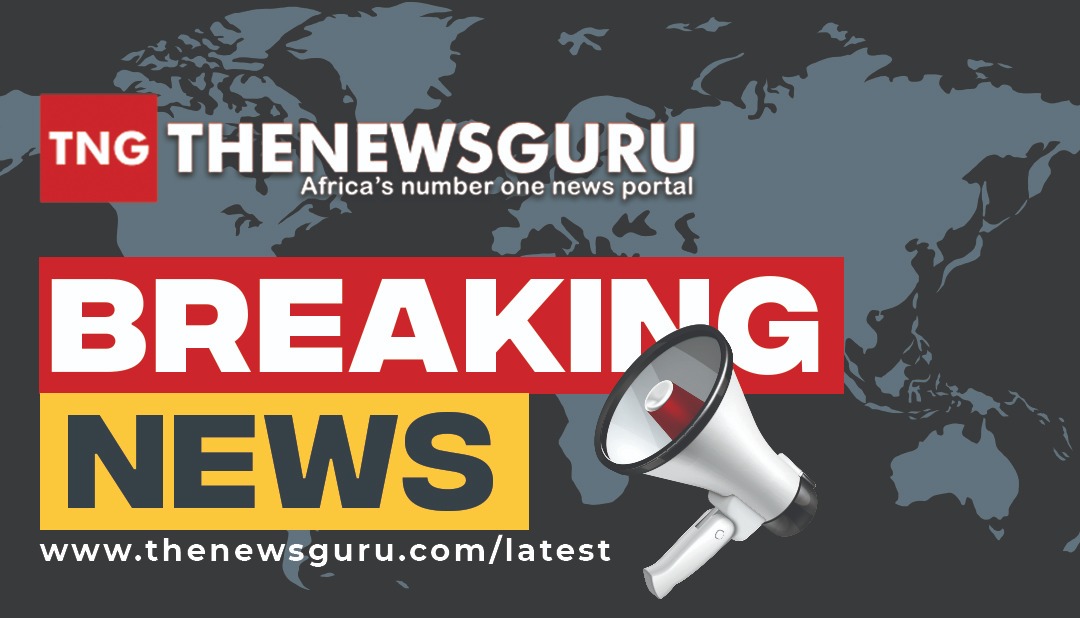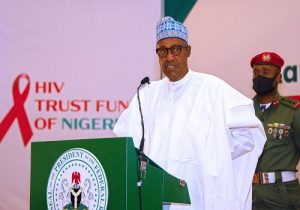By Magnus Onyibe
Before delving into the nitty-gritty of the obviously rough road to Aso Rock Villa seat of presidential power, permit me to draw attention to the fact that l had predicted that becoming president of Nigeria in 2023 will be a straight fight between former president, Turaki Atiku Abubakar (1999-2007 and ex Lagos state governor, Asiwaju Bola Tinubu (1999-2007).
That is fully captured on pages 331 and 332 of my new and fast-selling book: “Becoming President of Nigeria. A Citizen’s Guide.”
The opinion piece was first published as an article titled: “Becoming President Of Nigeria, 2023” by TheCable.ng on September 15, 2021 and other news platforms.
Here is an excerpt:
“Beyond the rotation of the presidency between the north and south arrangement, which seems to be taking up a huge chunk of media space as 2023 general elections loom large, other critical factors are nuanced but Germaine to the matter of who becomes the president of Nigeria in 2023. The word on the streets is that the fast-approaching 2023 presidential contest would as usual be a two-horse race between the ruling All Progressive Party, APC, and the main opposition, Peoples Democratic Party, PDP. It is also being predicted that the battle would be waged between former Vice President Atiku Abubakar of PDP and former Lagos State governor, Bola Tinubu of APC.
The permutation that the ex-Vice President would fly the flag of the main opposition, PDP, and the ex-Lagos State governor is likely to be the flag bearer for the ruling party, APC may be based on the first mover’s advantage being enjoyed by the duo who happen to have been the most visible and active politicians that are angling for the presidency from both parties at this point. But the question of who would become the candidate for the presidency in 2023 still depends on if the ruling party, APC zones the presidency to the south as agreed when the coalition of opposition political parties against then ruling party – PDP, was in the making in 2013/14. In the event that the presidential power shift agreement is upheld, then Bola Tinubu who was instrumental to APC clinching the presidency in 2015 would be waiting in the wings to collect the flag.
And in the case of the PDP, the possibility of the presidential candidate being Atiku Abubakar would become clearer, if the party accepts the Bala Mohammed led committee recommendations that the main opposition party jettisons her presidential power rotation policy and declare the ticket open to all interested parties. Should the foregoing proposition become manifest, the PDP may decide to rally once again behind Atiku Abubakar, her presidential candidate in 2019.”
Allow me to also point out that both the ruling and main opposition parties, the platforms from which the president would undoubtedly emerge (despite the hype about the rising profile of the Labor Party, LP, and its presidential candidate, Peter Obi) are severely handicapped and therefore in quandary with regards to how to equitably share or distribute political positions amongst the multiple ethnic and religious groups that constitute our country.
The dilemma of the ruling party at the center and the main opposition party is simply owed to the reality that they are both suffering similar debilities which l would like to drill down to reducing the options of political power sharing to just two-president and Vice President instead of creating multiple choices-Senate president, speaker of the House of Representatives, and their deputies, secretary to government of the federation, Chief Justice of the federation, etc to meet the expectations of the multifarious ethnic and religious interests of which our country is comprised . The crises that the presidential candidates are having in choosing their running mates is derived from the fact that political power sharing formula that is being applied is restricted to presidency rotation principles instead of applying other options such as putting all the powerful positions on the table for allocation, upfront.
And l will dwell more on that very critical aspect of the political miasma that is currently suffocating the two presidential flag bearers of the two main political parties, shortly.
It is important to remember that the political parties have 17th June (this Friday) deadline to submit the names of their running mates to lndependent National Electoral Commission, INEC.
Hence the current mad rush to conclude that task.
Before delving further into the religious and ethnic oddities that would make or mar the chances of Atiku Abubakar or Bola Tinubu becoming president of Nigeria in 2023, first of all, l would like to focus on the issues that arose and culminated in the events that shaped the just concluded presidential primaries for the ruling party, All Progressive Congress, APC, where Tinubu emerged as its flag bearer.
It was no surprise to me and l guess most pundits, that the APC special convention, which is a precursor to the 2023 general elections would be in a dead heat soon after it commenced. That was already palpable on the eve of the event held at eagle square, Abuja, 6th-7th June.
It all started with president Mohamadu Buhari’s high-wire consultations with major stakeholders of the party, ranging from members of the powerful governors’ forum, National Working Committee , NWC members to the already screened/vetted presidential candidates and northern governors elected on the party platform.
And it is only the undiscerning that did not already figure out that beyond the jostle for the presidency of Nigeria in 2023, it was a power tussle between the very powerful governors forum on one hand,versus the legislature on the other hand with the presidency or cabal around it as biased umpire with self enlightened interest.
And the supremacy battle had been ongoing from as far back as when the yet to be reformed electoral act 2010 was being considered for review to reflect current sociopolitical dynamics in our beloved country.
To put things in context, it is important that we take a few steps back to 2018 when the bill was first reformed and sent to the president for assent and he declined on the ground that it was too close to 2019 general elections. At that point in time, although the senate presidency was with Bukola Saraki, the Cold War had begun, but it was subterranean. The battle of wits between the National Assembly, NASS, and governors burst into the fore and continued in 2020, before spilling over into 2021. It reached a crescendo in the first quarter of this year as the bill finally became a statute with president Buhari’s signature appended to it.
Stunningly, each time the bill was passed by the legislature and sent to President Buhari for his signature to convert it into a new law, the governors quickly whispered their group interests (disguised as national interests) into president Buhari’s ears. Thereafter, it would appear as if he would withhold his assent and demand the addition or removal of some clauses. Then the legislators would go back to the trenches again and tweak the law in such a manner that their interests would be protected, then send it back to the president. Again the governors’ world return to corrupt the president with their own version of ‘national interest’ and the ‘undemocratic’ content of the bill would the subject of heated debates, sometimes with the general public getting involved. Take for instance the electronic transmission of election results from the polling booths to Independent Electoral Commission, INEC database/server which after public outcry against its expungement, and was restored.
At some point, the bill had been so much bounced back and forth between the legislature and presidency about five (5) times, that it was like a yo-yo.
And that is what inspired an article titled : Electoral Act Amendment Bill: Interrogating the Ogbanje/Abiku Element which l wrote and published on both traditional and new media platforms on December 25, 2021.
Here is a snippet:
“For the benefit of those not familiar with the African mythology, it is about a child born but with predestination to die each time she is birthed. So, tagging the electoral act amendment bill Ogbanje or Abiku was owed to the fact that NASS had conceived and given birth to the bill and sent it five times to President Buhari who had equally killed it by sending it back to the sender five times.”
The criticality of a reformed electoral act to the future of democracy in Nigeria can not be overemphasized. But suffice it to say that it is the value of its reformation that Asiwaju Bola Ahmed Tinubu just profited from during the just concluded APC presidential primaries.
Because without clause 84(9 a, b, c) in the electoral act 2022, Tinubu’s on going journey to Aso Rock Villa could have been truncated on the altar of consensus even before it started, and without restraint or compunction as APC chairman Adamu’s decision in the afternoon of 6th June would have been sacrosanct.
It is welcoming that Tinubu’s doggedness and proactiveness paid off in ensuring that all the loopholes hitherto exploited by unscrupulous politicians to impose candidates were closed ahead of time.
We will return to how the eventual winner of APC primaries was able to sneak the iron-clad clauses into the reformed electoral act 2022.
But first, I crave your indulgence to take a deep dive into what happened in Aso Rock Villa a week before the convention and on the D-Day at the Eagle Square, Abuja.
Even though in a meeting with APC stalwarts (NWC members and governors), president Buhari tried to remind them that they got to their positions via consensus and drew attention of the governors to the fact that he has been looking the other way while they have been imposing their preferred candidates as successors in their respective states. But he did not, or could not push through with his demand for the acceptance of his preferred candidate, perhaps due to his ambivalence or his last minute decision to provide a level playing field for all to prove their mettle. And I suspect it is more of the latter than the former.
It may be recalled that Mr president had in a television interview, way back in January this year stated that he had a candidate that he would like to take over from him as president in 2023. And he also stated in that same interview that he would like to keep the identity of that preferred candidate close to his chest so that the blue ‘eyed prince’ would not be eliminated-it was not clear if he meant physical or political elimination.
Apparently, since president Buhari could not or did not sell his candidate to the stakeholders, that is probably why the task was outsourced to the ruling party chairman, Abdullahi Adamu.
That is the reason that on day one (1) of the convention, he called a meeting with the party’s National Working Committee, NWC members, and announced the person of the senate president, Ahmad Lawan as the consensus and anointed candidate.
That decision hit a brick wall, as it resulted in a revolt by the party executives that were in attendance. The NWC members then alerted the governors, (whom in any case, they are fronting for) since it is the governors that nominated them as their preferred candidates for the party executive positions.
Having been alerted, the all-powerful governors swung into action and demanded a meeting with the party chairman, Adamu, who tried to avoid it as he was trying to escape having the difficult conversation with the highly powerful and incensed governors.
But inevitably, a meeting was forcefully held, and there was a walk-out from the meeting (featuring the national chairman of the party) by northern governors who had earlier recommended to President Buhari that the presidency should shift to the south. That demand that is seemingly altruistic in motive, is actually tainted with the selfish interests of the governors.
The selfish angle lies in the fact that if senator Ahmed Lawan, a dark horse, was to become president, then it would take a minimum of sixteen years for any of the current governors to get a chance of becoming president of Nigeria.
Obviously, in sixteen years, most of the present crop of governors would not only have lost steam, momentum, and control of the party structure; they would have also become geriatrics and likely too infirm to mount the saddle of leadership in Aso Rock Villa by the time the presidency pendulum swings back to the north.
That is simply because hypothetically, after Lawan’s eight (8) years presidency, willy nilly, the presidency pendulum would swing back to the south for another eight (8)years making it a total of sixteen (16) years. And northern governors could not phantom or stomach why they would be in the political wilderness or lurch for that length of time. Hence they pulled the plugs on Ahmed Lawan’s opportunity of becoming president of Nigeria which had attained an apogee level before it became a casualty of the power play between governors and legislators.
In a nutshell, the ability and capacity of governors in cahoots with members of the NWC of APC to launch a comprehensive rejection of the consensus process proposed by the party chairman, Adamu, ostensibly at the behest of President Buhari, is a product of the safety nets embedded in electoral act 2022.
It is amazing how a consensus option that had earlier been applied in March which is barely three months ago in recruiting the party executives, got vehemently opposed by its beneficiaries. The rebellion was unanticipated by the proponents of consensus candidacy who had, had their way the last time. Owing to the swiftness of the pushback that was akin to a firestorm , the consensus exponents had no option than to beat a hasty retreat.
The surrender by the so-called cabal driving the consensus initiative seemed like the best option at that point in time because the internal revolt of the critical stakeholders in the party against a consensus candidate process had all the trappings of a crisis that could have exploded in the manner that it would have appeared as if implosion of the party was a fait accompli.
It was indeed a moment of truth type of experience for APC as a party and for their leaders with the intent to impose candidates without first of all getting the buy-in of co-contestants or concerned parties.
For those that may be wondering why governors and legislators are always trying to outwit each other in the political universe, allow me to offer you a peek into the cloak and dagger relationship between them.
First of all, most legislators are ex-governors as the senate has become a sort of retirement home for them.
Having been governors that controlled the political apparatus within their respective states, the senators find it difficult to yield control of the political structures in their states to their successors who are indeed entitled to be the holders of the control button by virtue of the fact they are the leaders of the parties in the respective states that they preside over.
With governors being in that pole position, during local government and ward congresses they often monopolize the power of incumbency by ensuring that it is mainly their candidates that emerge as the chairmen of councils, councilors and party executives to the consternation of legislators who once wielded such powers.
It is such face-offs between the legislators and governors at the sub-national and grassroots levels that later snowball into crisis that emerge at the center as storms and which thereafter would evolve into the type of political war that has just been lost and won during the party primaries, from the state house of assembly, house of representatives, gubernatorial , senate and presidency stages for both the APC and PDP.
Although it was less fractious, PDP also experienced the governors’ and legislators’ supremacy battle during its primaries as revealed by governor Nyesom Wike who has been lamenting how the governors who had formed an alliance to push one of their own and particularly, a southerner got betrayed by some of them that worked against the team spirit. Little wonder that long after the end of the exercise held nearly two weeks ago, PDP is still busy mending fences.
Such patching up of torn fabric of the party is critical to enable it forge ahead with a common front to engage the opponents in the general elections.And l urge the stakeholders to do same at states and local government levels to enable them go into the general elections in unity.
But after the initial scare that APC was about to be unhinged and get disintegrated during its presidential primaries, the ruling party once again pulled through, particularly as the ambition of the winner, Bola Tinubu blended with the interest of the northern governors. It is that synergistic force that enabled both to fend off the onslaught from a combination of the so called cabal and the legislature, presumably tele-guided by the presidency and prosecuted by party chairman, Adamu.
The forgoing is a short narrative of how the ruling party, APC once again wobbled and fumbled its way through another difficult exercise in picking its presidential candidate in the manner that it had under similar challenges elected its party executives via consensus process earlier in March.
At this juncture, it merits underscoring the fact that during the party convention where the NWC was picked, the eventual winner of the primaries, Bola Ahmed Tinubu was checkmated as the consensus option was applied. But during the special convention to elect the presidential candidate, the game changed, largely due to Tinubu’s political savviness reflected by the brinksmanship deployed in one breath, and rough and the gruff approach applied , in another breath. That perhaps validates the ex-Lagos state governor’s reputation as one of the greatest political tacticians of our time as evidenced by the fact that it was he who midwifed the birth of the APC resulting in the first of defeat of an incumbent president for the first time in the annals of Nigeria, if not Africa. And he has also been able to continue to dictate and have a leash on who becomes governor of lagos state since 1999 when he first served as the governor till date.
To be clear, things did not pan out in favor of APC’s national leader, Tinubu only due to the selfish interest of northern governors who are waiting in the wings to contest for the office of the president in the next election circle in 8 years, as opposed to waiting for 16 years, if consensus option had been adopted and Lawan became president.
But Tinubu’s Presidential quest gelled or overlapped with the governor’s motive as it also enabled them to present their push for the return of the presidency to the south coated with the veneer of equity, fairness, justice and for the sustenance of national unity which made them look like saints and statesmen.
An equally significant and final arbiter is the clause 84(9 a, b, c) of the electoral act 22 which makes it compulsory for all the contestants to consent to a consensus process before it can be legitimately applied. Otherwise it would be a nullity. That is what tied the hands of those who wanted to literally do Tinubu in, the second time by attempting to adopt the consensus process in the primaries, where a candidate would have been imposed irrespective of the popularity of Tinubu, the eventual winner.
Remarkably, that significant and critical clause was a last-minute addition to the electoral act 2022 by the House of Representatives reportedly with the speaker of the House of Representatives, Femi Gbajabiamila’s sleight of hand. And it was done after President Buhari refused to assent to the initial bill which had only direct primaries option and he was insisting on adding indirect and consensus options to party primaries process to give it a more democratic outlook of freedom of choice .
As the lower parliament was doing that to satisfy the president’s precondition to signing off on the bill, it also had the foresight to insert the clause which would metaphorically enable those who were loathsome of the consensus option, to take back with the left hand, what they had given with the right hand.
It might interest readers to know that it is due to the fear of the abuse of the consensus option by leaders that it was originally not included in the electoral act 2022. And as anticipated and feared, that less democratic consensus option could have been activated, if the game-changing clause 84(9 a. b. c) had not been cleverly inserted.
Back to matters arising from the APC convention and how Tinubu emerged as the flag bearer.
The main highlight is that in the course of the night on day two (2), a whopping seven (7) gentlemen and women who had purchased the nomination forms, submitted same to the party , and passed through all the rigorous processes stepped down for the eventual winner, Tinubu.
These are senator Godswill Akpabio, Dr Kayode Fayemi, Senator Ibikunle Amosun, Senator Ajayi Boroffice, Mr. Dimeji Bankole, and Governor Abubakar Badaru of Jigawa, and Mrs. Uju Ohanenye. The gentlemen and lady that purchased APC presidential nomination forms at a whooping N100m each, gave up their ambition for Bola Ahmed Tinubu, whose life ambition by his own admission is to rule Nigeria.
That is unprecedented.
And it is not out of order to wonder if there is an undertaking by the beneficiary to refund their N100m apiece plus the cost of their electioneering campaigns before they gave up their ambitions. But that is a subject of discussion another day.
More striking and more relevant to the issue of loyalty is the fact that most of the seven (7) candidates who stepped down for Tinubu, except Akpabio, Badaru, and Ohanenye are Yorubas.
It is evidence of the oft-vaunted Yoruba ‘Parapo’ (translated as Yoruba solidarity).
It should be noted that as evidence of its Republicanism , the lgbos could not consolidate their votes for a particular aspirant as the Yorubas have done.
And contrary to the apparent perception that the ex Lagos state governor’s influence in Yoruba land had waned as his erstwhile foot soldiers-Yemi Osinbajo, Babatunde Fashola, Rauf Aregbesola, Ibikunle Amosun etal -were believed to have carved out their own political fiefdoms in Yoruba land, as such Tinubu’s sphere of influence had been whittled, proved to be unfounded.
That is because going by the positive outcome of the APC primaries for Tinubu, he has by all standards of measure waxed stronger in stature and influence even far beyond Yoruba land to the heartland of Hausa/Fulani in Kebbi state and lbibio enclave in Akwa lbom state which are far flung places from where some of the aspirants that stepped down for him,hail .
So, effectively, while the dream of Tinubu, ex governor of Lagos state to rule Nigeria has grown wings, the dream of 22 others who obtained the APC expression of interest and nomination forms to become president of Nigerians in 2023 and pursued it to the end,died that fateful night of Tuesday, June 7, 2022.
One remarkable and unique aspect of the exercise is that the names of the states of the delegates were not affixed on the ballot boxes. Instead, they were assigned numerical numbers. That way the candidates were unable to tell the states of the delegates that voted for or did not vote for them. Otherwise, those that lost out might have been able to determine the states that didn’t vote for them and perhaps demand that the delegates from such states that collected financial inducements from them, but failed to keep to their promise, must make a refund of the inducement.
The dust is yet to settle on how some disappointed aspirants had to resort to the use of thugs (since the transaction is illegal) to enforce the refund of the monetary inducements offered to delegates during other party primaries held earlier.
Video footages depicting such rather outrageous and obscene events have been trending in the social media space in this season of politics.
Does anyone remember the infamous police mantra : “If you don’t like the police, call a thug”?
Indeed, Nigerians appear to have heeded the message in that slogan by resorting to engaging thugs to help them resolve matters that used to be in the purview of the police force. Who could have thought that such proposition of abnormality and absurdity would become a reality in 21st-century Nigeria?
Nothing demonstrates the bizarre truism that our country has descended into chaotic levels of Wild, Wild, West of the hue that was experienced during the gold rush in the 17th century in 1912 in the USA, than the resort to the use of outlaws/bandits for debt collection by political actors.
With the counting of the votes done and dusted in the early hours of Wednesday, June 8, an autopsy of the dead ambitions of APC politicians is in order.
Before then, it is proper that we also reflect on what transpired during the party primaries for recruiting the presidential candidate of the main opposition party, PDP, that was held and concluded since 28-29 May.
As has been widely reported, Turaki Atiku Abubakar, a veteran of several presidential elections, that has chalked up about five (5) attempts at becoming president of Nigeria in the past thirty (30) years or so, has won the PDP presidential primary contest fair and square.
He has since been congratulated by his very formidable co-contestants, particularly Nyesom Wike, governor of rivers state and Bukola Saraki, former senate president who are the first and second runners-up.
Like his counterpart in the APC, Tinubu, whenever Abubakar had the opportunity to contest elections fairly and openly, he always prevailed. Even when the north set up a process to produce a consensus candidate to square up against then president Goodluck Jonathan in 2011, Atiku Abubakar prevailed over the others including ex-finance minister, Adamu Ciroma of blessed memory and former head of state Ibrahim Badamasi Babangida, amongst others.
The only occasions that Abubakar who is a political maverick failed to win , there were conspiracies to hobble him.
Be it when former president Olusegun Obasanjo whom he served under as Vice President in 2007, applied both overt and covert means to scuttle his presidential ambition , to when president Buhari was declared the winner of his 2019 re-election bid and which Abubakar believes that he won.
In light of the intimidating political pedigrees of both the APC and PDP presidential candidates, 2023 presidential election promises to be a Battle Royal, and this is even more so with the Peter Obi driven youth revolution in politics that promises to significantly increase the numbers of voters turn out as he is about to convert youth bulge into a voting machine and reason that bookmakers are already placing high bets.
Again, to put things in perspective, it is proper to cast our minds back to the onset of the jostle for the presidency of Nigeria when over 40 political actors threw their hats into the ring.
That is specifically 17 from the PDP stable and more or less 29 from the APC platform bought the expression of interest and nomination forms. For the APC, while about 29 indicated interest, 25 aspirants returned the forms, and 23 made it past the screening stage. Although only 14 were given the final go-ahead after the screening and pruning down processes, 22 of them pitched themselves to the delegates on the night of Tuesday, June 7, 2022 with one of them, Emeka Nwajuiba absenting himself based on principle and dissatisfaction with the party for not toeing the path of a consensus candidate as allegedly agreed.
Below is a list of APC presidential aspirants who completed the race and their scores at a glance:
Pastor Tunde Bakare – 0,
Hon Emeka Nwajiuba – 1,
Gov. Dave Umahi – 38,
Senator Ahmed Sani – 4,
Rt. Hon. Chibuike Rotimi Amaechi – 316,
Dr. Ogbonnaya Onu – 1,Gov. Yahaya Bello – 47,
Senator Rochas Okorocha – 0,
Prof. Yemi Osinbajo – 235,
Senator Ahmad Lawan – 152,
Gov. Ben Ayade – 37,
Tein Jack Rich – 0,
Chief Ikeobasi Nwaokelu – 0,
Asiwaju Bola Ahmed Tinubu – 1271
The list of presidential aspirants of the PDP who stayed in the game till the end is also detailed below:
The winner of the contest, former Vice President of Nigeria, Atiku Abubakar- 371 votes,
Governor of Rivers state Nyesom Wike 237 votes,
Former Senate President, Bukola Saraki-70 votes
Akwa Ibom State Governor, Emmanuel Udom -38 votes,
Bauchi State Governor, Bala Mohammed -20 votes
Former Senate President/SSG, Pius Anyim- 14 votes,
Pharmacist, Sam Ohabunwa – 1 vote,
only Female aspirant, Olivia Tariela – 1 vote,
Media entrepreneur,Dele Momodu -0,
Former governor of Ekiti State, Ayo Fayose -0,
Lawyer, Charles Okwudili – 0.
Aminu Tambuwal,Sokoto state governor stepped down for Atiku Abubakar in the manner that seven (7) aspirants also stepped down for APC’s flag bearer, Tinubu.
Of course, the PDP presidential primary election was less tumultuous compared to the APC’s which was filled with tension.
Conscious of limited space and time, l will only do a post-mortem on the dead ambition of the top three (3) highest scoring aspirants for the office of the president of Nigeria from both the APC and PDP.
Having profiled Bola Tinubu and Atiku Abubakar both of who are the winners of their respective parties’ primaries and who are currently preparing for the general elections on February 25 that promises to be a clash of the titans, allow me focus on Rotimi Amaechi, who is the next highest scorer after Tinubu followed by Yemi Osinbajo in the APC stable.
That will dovetail into a cursory look at Nyesom Wike, then Bukola Saraki who respectively scored the second and third highest votes on the PDP platform.
So much has already been written and said about Amaechi who some have even labeled a betrayer for pandering towards the north to the detriment of his southern kit and kins. He may be particularly hurting because apart from being a two time director-general of Buhari’s campaign organization, he made strident efforts to court the north. He even became a titled chief in Daura, Katsina state, president Buhari’s homestead. All in the bid to be accepted as one of them.
l guess Amaechi was counting on a sort of quid pro quo from president Buhari by perhaps assuming that he was the mystical preferred candidate that Mr president alluded to in that famous January television interview. But he spectacularly lost to the man that his admirers refer to as the Jagaban , Bola Ahmed Tinubu by a very wide margin of votes.
As for Vice President Osinbajo whose pretty best was to garner the third highest votes, it had long been settled in my mind that he was not going to become president of Nigeria in 2023 as his friends who failed to conduct a thorough research that could have enabled them offer him sound advise against the misadventure, would have loved.
Perhaps, what gave him the Dutch courage is that he also nursed the erroneous impression that he is the preferred candidate that president Buhari had penciled down as his successor or because he is just a heart bit away, and he thought he would simply be coronated in a similar easy manner that he attained Vice Presidentship.
I was emphatic about the impossibility of his scaling up from no 2 to 1, due to the odds stacked against him as highlighted in my article titled: Becoming President Of Nigeria, 2023 And It’s Surprises that was published on both traditional and online media platforms on 17 May , 2022. An excerpt is reproduced below:
“Having analyzed the chances of most of the other serious aspirants, folks may be wondering why l am not reckoning with the interest being expressed by the current Vice President, Yemi osinbajo to step into the shoes of his boss, President Buhari.
While I recognize his right to aspire to become president of Nigeria in 2023 which is only a step away from his president position, it must be recognized that there is a limit to which happenstance can carry a man. And my pragmatic prognosis which those in Osinbajo’s camp may deem as pessimistic and an affront is not meant to eviscerate him as it is derived from both trend analysis and reality check.
With respect to historical trend analysis, Nigerian leaders, (be they presidents or governors) are hardly keen on passing on batons of political power to their deputies.
Perhaps, it has to do with the reality that the second- in-command position (which is what a Vice President or deputy governor really is) often is deliberately and diligently selected from a pool of the politically weak. Former president Olusegun Obasanjo at the presidency level and Ex-lagos state governor, Bola Tinubu, at the governorship stage are the franchisers of that formula after learning the hard way that their deputies were more politically sagacious than them. Since, as the saying goes: ‘necessity is the mother of invention’, a counter-strategy was formulated as an antidote.
As it has been efficacious, it is unsurprising that it is now a sort of holy grail for presidents and governors alike.”
After his colossal loss of the contest to his former boss and the man who drafted him into politics , Osinbajo will also bear the indelible scar of being tagged a betrayer for the rest of his life.
With respect to the losers in PDP, While Rivers state governor, Wike is loved in the south for standing up for southern interests while engaging with his northern counterparts, he is despised in the north for his perceived aggression against them. He is known to complain about northern hegemony and even went to court to seek resolution on whether north is entitled to value added tax money generated from the sale of alcohol and other items forbidden in the north owing to their Islamic faith. Such aggressiveness is being counted against him.
But make no mistake about it, Wike is loved at home and around the south-south side of our vast country.
As for Bukola Saraki, the scion of senator ,Olusola Saraki of blessed memory, (himself a veteran of many battles) , he has always proven that he is a true son of his father.
That is evidenced in his triumphing in the multiple battles that he has engaged in throughout his checkered political career which spans when he first got appointed as an aid to president Obasanjo in 1999 to becoming two terms governor of Kwara state and eventually a senator, then president of the senate before eying the presidency in 2019 of which he lost to Turaki Atiku Abubakar, during primaries, to whom he has succumbed to , a second time in the primaries held last month end.
In my reckoning , these monumental disappointments are severe enough to traumatize these political actors profiled above. If not them directly, their family members such as their offsprings and wives who are often drawn into the political arena .
But because some politicians are thick-skinned,nothing fazes them. Hence the key participants in the last party primaries appear unperturbed as they have been getting on with their daily chores as if they were triumphant in their last endeavors that went awry.
Now, the uncanny challenges on the path to presidency for both APC and PDP have been narrowed down to the choice of Vice President candidates for the duo of Atiku Abubakar and Bola Tinubu who are the presidential candidates of both parties respectively.
And the odds are against both of them because of the reduction of the pie to just two when it can be multiple pies out on the table for equitable sharing .
Here is the deal:
Apart from the office of the president and Vice President, how about senate president, speaker of the House of Representatives and deputy senate president and deputy speaker , secretary to the government of the federation, Chief Justice of the federation, which are equally significant offices that can be put on the table from the get-go for assignment to the various ethnic and religous interest groups that are jostling to be included in the leadership of government. It is critical in order to create a balance or semblance of inclusiveness in the equation or calculus of who gets what in the comity of multiple ethnic nationalities and faiths.It is important that all significant offices are added to the package upfront so that there would be assurance to all the ethnic and religious groups that there is enough political offices to spread equitably across board in order to give all partners in the union a sense of belonging.
As a trained negotiator, l learnt that the hallmark of a satisfactory agreement is the creation of multiple options that would be laid on the table so that there would be a variety of choices for all the parties in the negotiation. Frankly, limiting the sharing of offices to only president and the Vice President positions is too constricting and myopic, in my view.
It echoes zero-sum instead of multi-sum political outcomes as l had posited in my last media intervention of last Tuesday 6th June 2023 titled: Would The Result of 2023 Election Return Nigeria To Multi-Sum Politics?
We must demonstrate and convince Nigerians that even if Atiku Abubakar does not choose an lgbo Vice Presidential candidate, it does not amount to an end of the road for the lgbo nation in the political power equation . In like manner, Christians and Muslims must be assured that Bola Tinubu who is not a northerner, but a Muslim and May or May not be picking a northern Christian as running mate or pairing with a Muslim as Vice President. And even if he takes any of those options, it would not do grievous harm to adherents of both faiths as they too would be duly offered other options .
Without the aforementioned assurances, the already brittle and sensitive religious and ethnic fault lines currently in tenterhooks may snap such that things may go haywire as Christian Association of Nigeria, CAN, leaders have been admonishing the presidential candidates of both the ruling and opposition parties to be sensitive to those sensibilities and sentiments .
Finally, it is about time that our political leaders started thinking out of the box,as opposed to doing things in the same old fashion ways that have imperiled our beloved country, instead of putting her on the much sought trajectory of growth thereby saving her from stagnation or tipping over.
Magnus Onyibe, an entrepreneur, public policy analyst, author, development strategist, alumnus of Fletcher School of Law and Diplomacy, Tufts University, Massachusetts, USA and a former commissioner in Delta state government, sent this piece from Lagos
